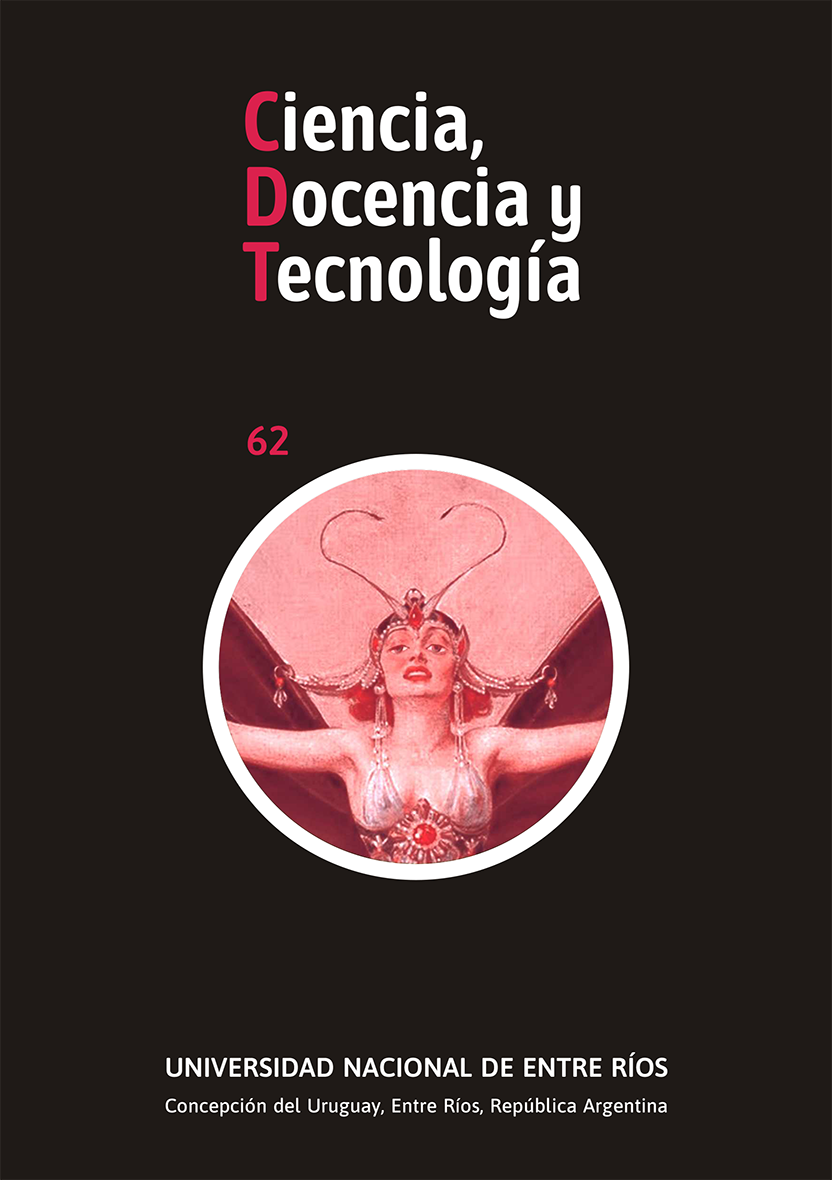Abstract
This work aims to make a contextualized analysis of experience reports posted in a forum by postgraduate students, who are also teachers, about their educational practices in non-face-to-face modality during the pandemic. Qualitative interpretive research tools support this study and propose an analysis of the narrations from two dimensions: encountered difficulties and implemented changes. The results show that although the technological resources adopted in this exceptional scenario do not replace the potential of the links or the methods of face-to-face teaching and learning, they constitute necessary and enriching resources for any kind of educational proposal. Likewise, this paper concludes that thinking about new forms of hybrid schooling, where virtuality and reality coexist and where institutions provide students training focused on abilities like working in changing environments, learning from others and with others through a critical adoption of technology is essential.
References
AREA MOREIRA, M. (2014). La alfabetización digital y la formación de la ciudadanía del siglo XXI. Revista Integra Educativa, 7(3), 21-33.
COBO, C. (2016). La innovación pendiente: Reflexiones (y provocaciones) sobre educación, tecnología y conocimiento. Montevideo: Colección Fundación Ceibal/Debate.
DUSSEL, I. (2020a). La escuela en la pandemia. Reflexiones sobre lo escolar en tiempos dislocados. Práxis Educativa, 15, 1-16.
DUSSEL, I. (2020b). La clase en pantuflas. Reflexiones a partir de la excepcionalidad. En Maggio, M. y otros. Bitácora de cuarentena para docentes y pedagogues. S/d.
DUSSEL, I.; Ferrante, P. y Pulfer, D. (2020). Pensar la educación en tiempos de pandemia. Entre la emergencia, el compromiso y la espera. Buenos Aires: UNIPE Editorial Universitaria.
FREIRE, P. (2019). Pedagogía de los sueños posibles: Por qué docentes y alumnos necesitan reinventarse en cada momento de la historia. Buenos Aires: Siglo XXI Editores.
LITWIN, E. (comp.). (2000). Educación a distancia. Temas para el debate en una nueva agenda educativa. Buenos Aires: Amorrortu.
SCOLARI, C.A. (2018). Las leyes de la interfaz: Diseño, ecología evolución, tecnología (vol. 141). Barcelona: Editorial Gedisa.
SCOLARI, C. (2019). ¿Cómo analizar una interfaz? Method January 2019. Disponible en: https://www.researchgate.net/publication/330651740_Como_analizar_una_interfaz
SKLIAR, C. (2020). Acerca de extrañar la escuela. Charla con Kaplan, C.; Feldfeber, M. y Catelli, J., Facultad de Filosofía y Letras, UBA. S/d.
TERIGI, F. (2020). Enseñar y aprender en tiempos de pandemia. En Maggio, M. et al. Bitácora de cuarentena para docentes y pedagogues. S/d.
TONUCCI, F. (2020). No perdamos este tiempo precioso dando deberes. Diario El País, 11 de abril de 2020. Disponible en: https://elpais.com/sociedad/2020-04-11/francesco-tonucci-no-perdamos-este-tiempo-precioso-dando-deberes.html [acesso: 21/08/2020].

This work is licensed under a Creative Commons Attribution-NonCommercial-ShareAlike 4.0 International License.
Copyright (c) 2021 Romina Cariaga

